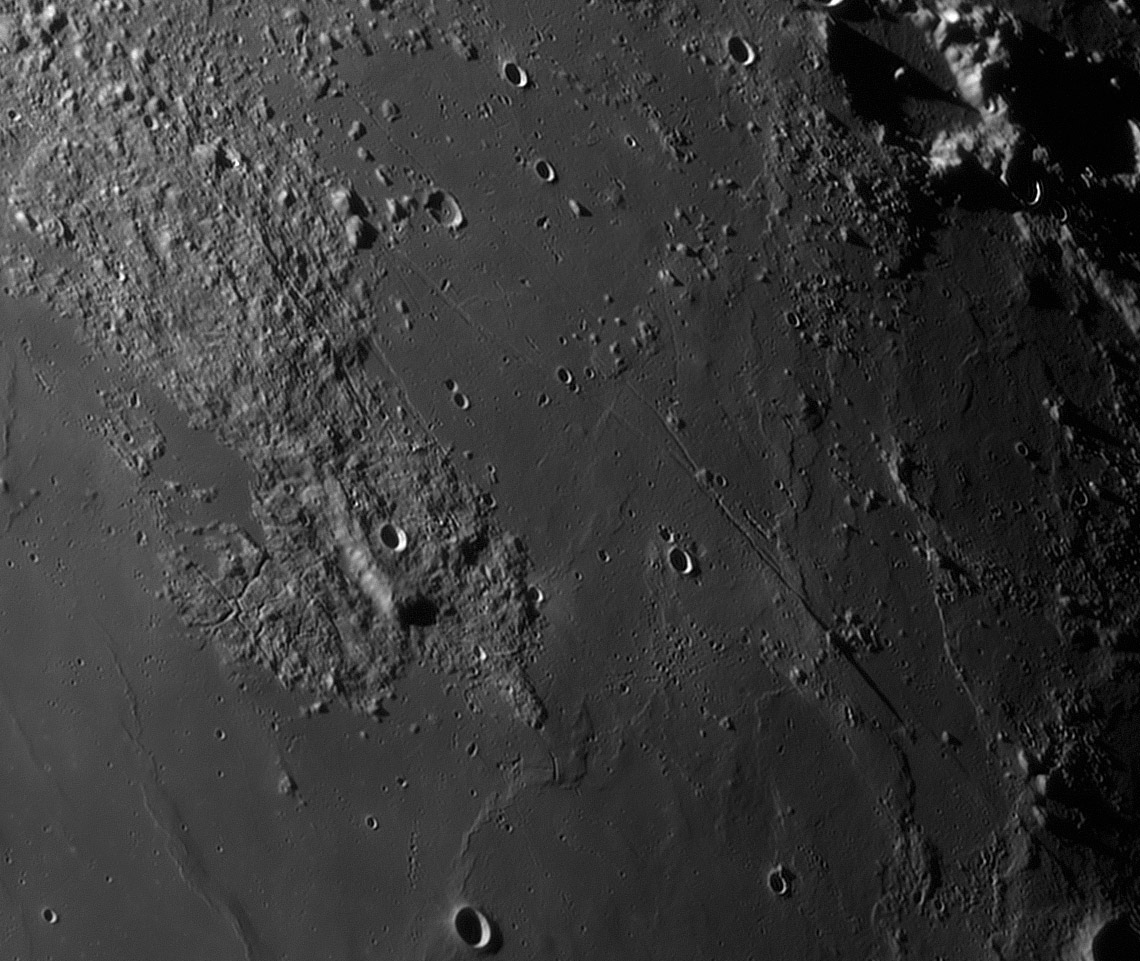August 29, 2023
Rimae Fantasticus
Originally published August 14, 2013

image by Wes Higgins, Oklahoma
This is too easy. This is the best image of this area in existence. The Lunar Orbiter IV frames have too high of Sun and indifferent resolution,
and there are no Apollo views of this piece of the Moon. Actually, the previous very best image is K.C. Pau’s remarkable shot with his 10″
telescope - the mantle of success is passed from amateur to amateur! And where is this area? A tip of the crater Daniell is at bottom right, and
Mason and Plana are deeply shadowed at top right. The rille-shredded Lacus Somniorum is middle-right, and a piece of Mare Serenitatis fills
the lower-left, with Luther pitting bottom-center. Identifying landmarks is a way to fill space when there is nothing to say, and that is partly true
here, because Wes’ image leaves me speechless. But there is such wonderful detail to be noticed, most impressively the shadow being cast
by the Daniell Rille, which (as I said for K.C.’s image) means that there may be a component of vertical faulting. There is an offset of the rille at
its southeast end where a slight shadow is cast by the isolated hill, and closer to Daniell a ridge shadow continues the trend. At the other end
there is a very delicate rille which may have been unknown until now. Just north of the 9.3 km wide crater Plana G (the flat-floored one with a
pit and a shadow) is a narrow rille trending in the same direction as the Daniell Rille. This new rille is about 85 km long and 900 m wide, at its
widest. Two other sets of rilles demand our attention, too. Three or more rilles are embedded in the unnamed peninsula of Imbrium ejecta
coming in from top-left. They have a slighly different orientation from the Daniell Rille and may have a completely different origin. Finally, the
southernmost part of the peninsula is cut by a complex series of linear and sharply curved rilles, which don’t look like rilles elsewhere on the
Moon.
Chuck Wood
PS - I just got to Tucson for a meeting and so, late at night, am very pleased to replay this classic LPOD from Sept 12, 2007.
Technical Details
August 3, 2007, 10:37 UT. 18″ Reflector, Infinity 2-1m camera, MAP processing (38 points) stack of 500 frames. This is an excerpt of a larger
image, visible on Wes’ website
Related Links
21st Century Atlas chart 9.
Wes' website
Yesterday's LPOD: Optical Magic
Tomorrow's LPOD: Younger? Older?
COMMENTS?
Register, Log in, and join in the comments.



